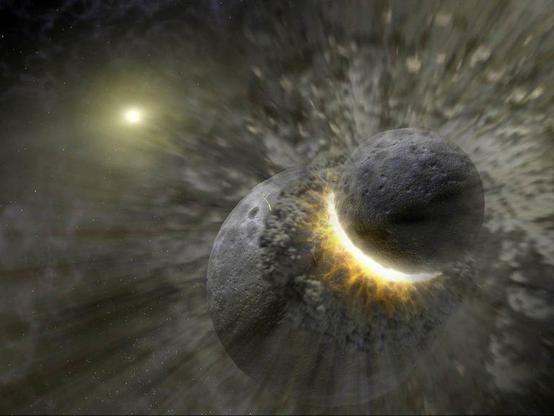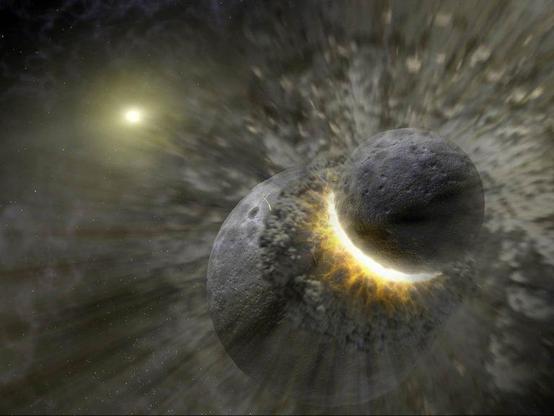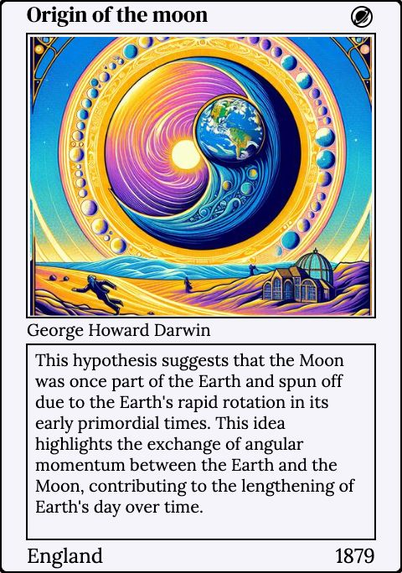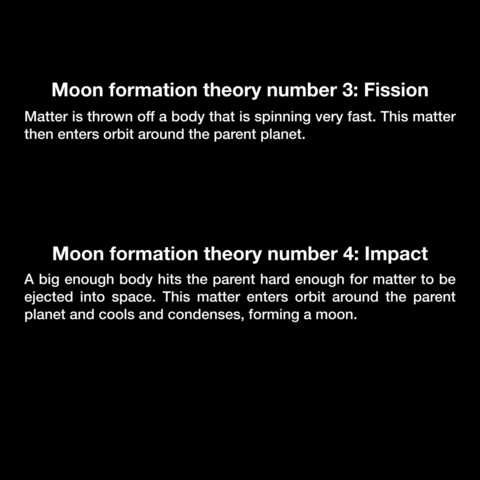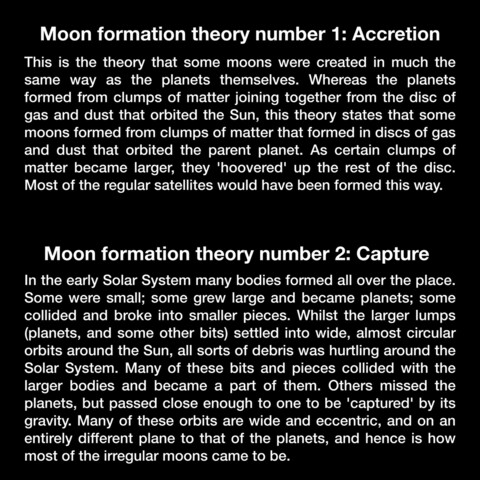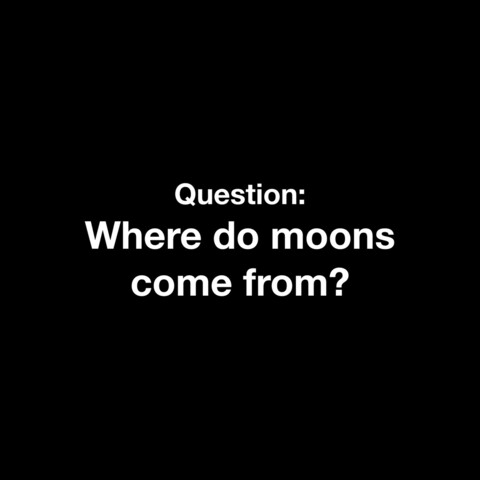Researchers find a carbon-rich moon-forming disk around giant exoplanet https://arstechni.ca/RNke #planetformation #Moonformation #astrophysics #astronomy #Science #JWST
#MoonFormation
[Moon formation scenari] After detailed 3D simulations and isotopic analysis of terrestrial and lunar rocks have swept aside the hypothesis of a collision between our proto-Earth and a planet called Theia, which scenario should be favored?
That's the topic on which Erik Asphaug, planetary scientist at the University of Arizona, will be speaking to the IRAPians this Tuesday afternoon: https://www.irap.omp.eu/event/if-at-first-you-dont-succeed-moon-formation-in-a-collision-chain/ Great discussions ahead 💬 👋
[Scénari de formation de la #Lune] Après que des #simulations3D détaillées et l'analyse isotopique de #roches terrestres et lunaires aient balayé l'hypothèse d'une #collision entre notre proto-Terre et une planète nommée #Théia, quel scénario privilégier ?
C'est sur ce thème qu'interviendra Erik Asphaug, planétologue à l'University of Arizona, auprès des IRAPiens ce mardi aprèm : https://www.irap.omp.eu/event/if-at-first-you-dont-succeed-moon-formation-in-a-collision-chain/ De belles discussions en perspective 💬 👋
Sir George Howard Darwin (Charles' second son) proposed in 1879 that Earth had been spinning so fast that some material broke away and began to orbit the planet. This popular theory was not disproven until the Apollo missions.
#MoonFormation #AIArt
https://invention.cards/origin-of-the-moon
Giant Planet Instability and Earth’s Moon Formation Linked
#GiantPlanet #planet #Science #SpaceScience #MoonFormation #GangaNews
https://www.ganganews.com/science/giant-planet-instability-and-earths-moon-formation-linked/
Things You Thought You Knew – Naming Planets, Moons, & More with Neil deGrasse Tyson
Fission and impact, simply explained.
“Why bother talking about moons? They're just boring lumps of rock.”
Not so! Moons are sources of great interest to anybody who's interested in space, and continually challenge the way scientists and astronomers think.
#SpaceMastodon #Spacedon #Space #Astronomy #Astrodon #ScienceMastodon #Sciencedon #Science #Moon #Moons #SolarSystem #MoonFormation #Fission #Impact
Different types of moons, perhaps unsurprisingly, are thought to come from different origins. Here are some theories Earth humans have come up with so far: accretion and capture.
#SpaceMastodon #Spacedon #Space #Astronomy #Astrodon #ScienceMastodon #Sciencedon #Science #Moon #Moons #SolarSystem #MoonFormation #Accretion #Capture
There are a number theories that have been put forward for moon formation, but accretion and capture are the most common for explaining the majority of the moons in our Solar System. Other theories include fission and impact. Learn more about moons: https://solarsystem.nasa.gov/moons/overview/
#SpaceMastodon #Spacedon #Space #Astronomy #Astrodon #ScienceMastodon #Sciencedon #Science #Moon #Moons #SolarSystem #MoonFormation #Accretion #Capture #Fission #Impact
